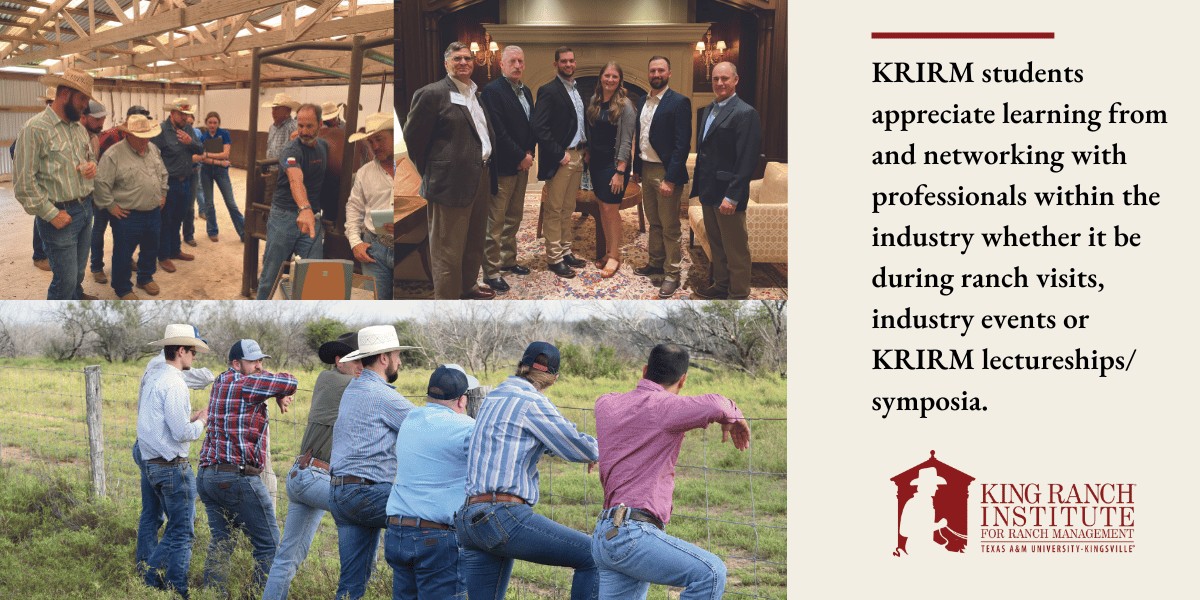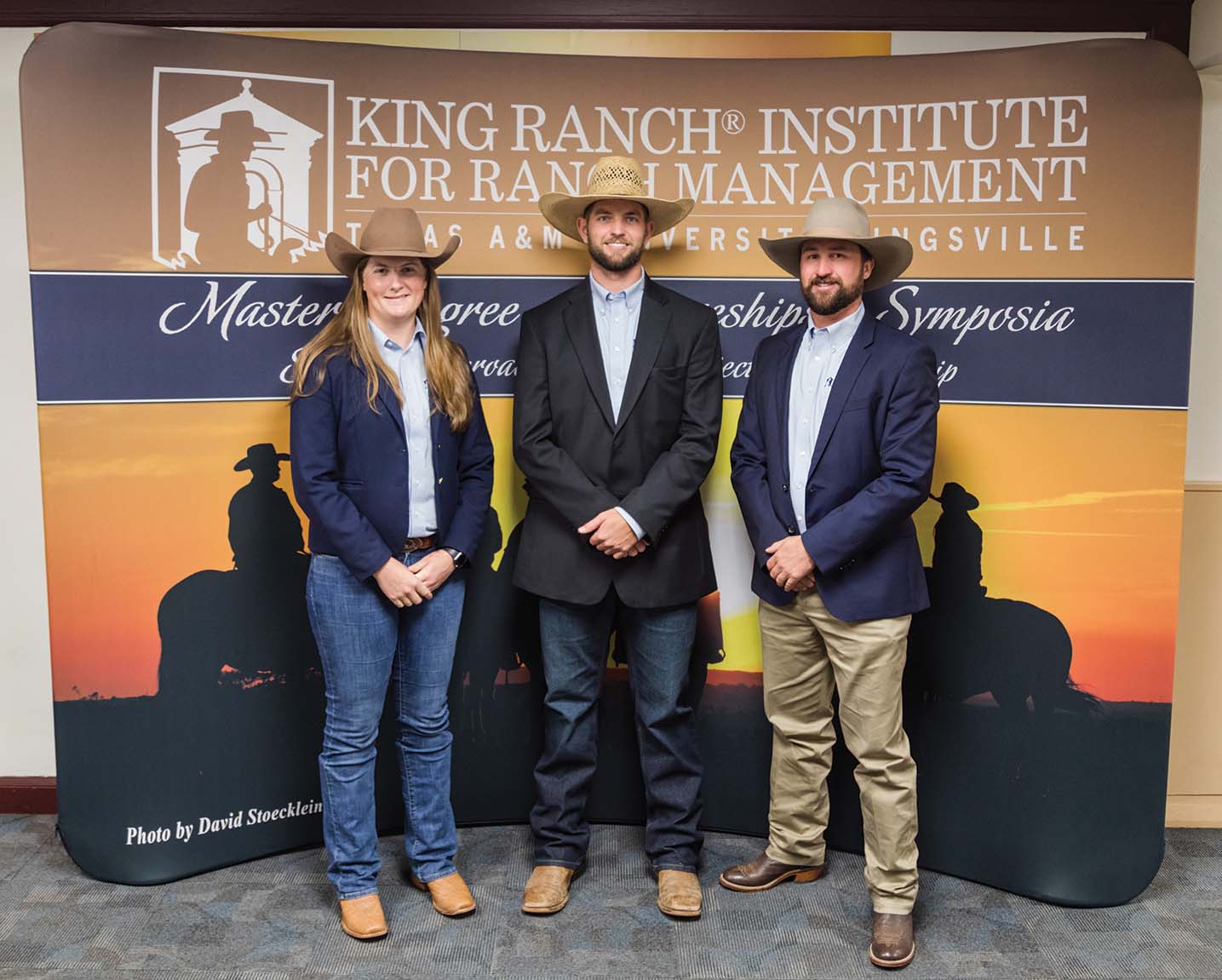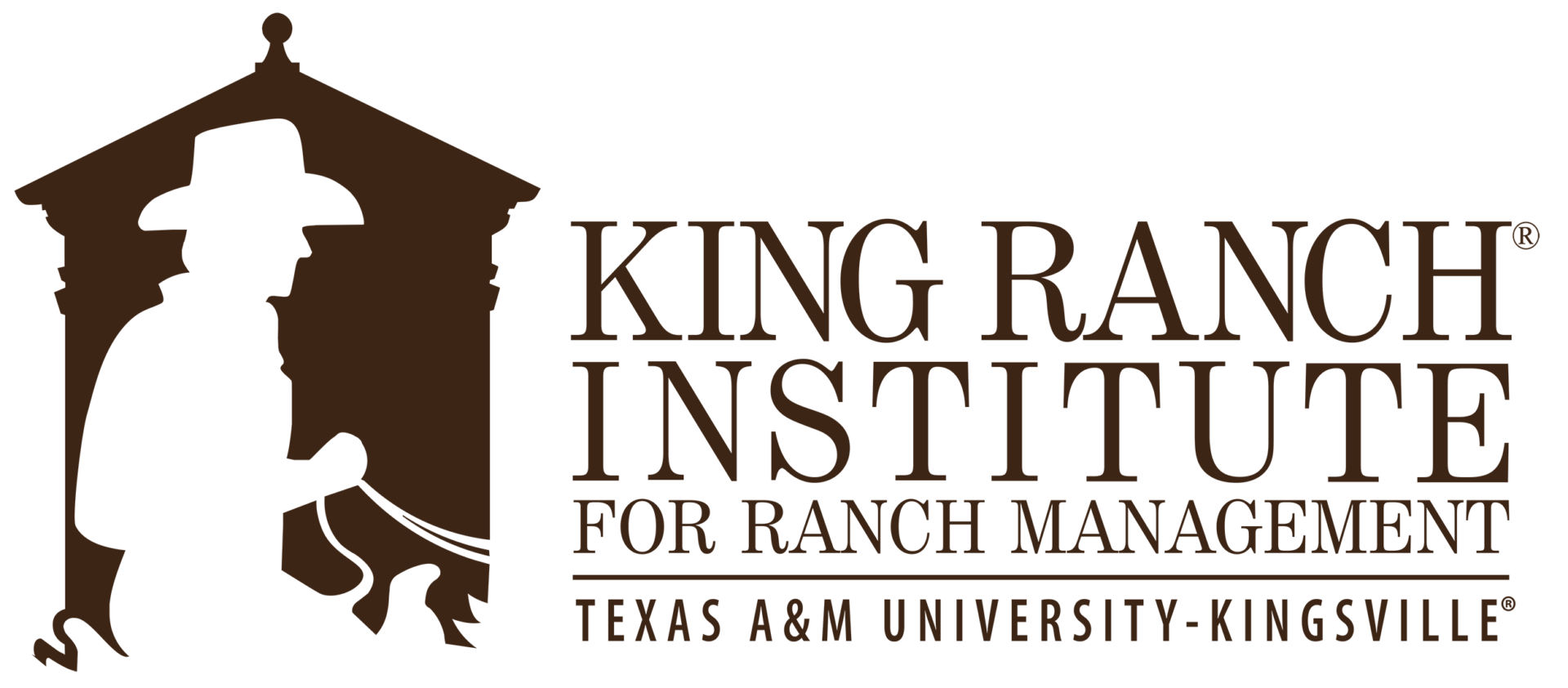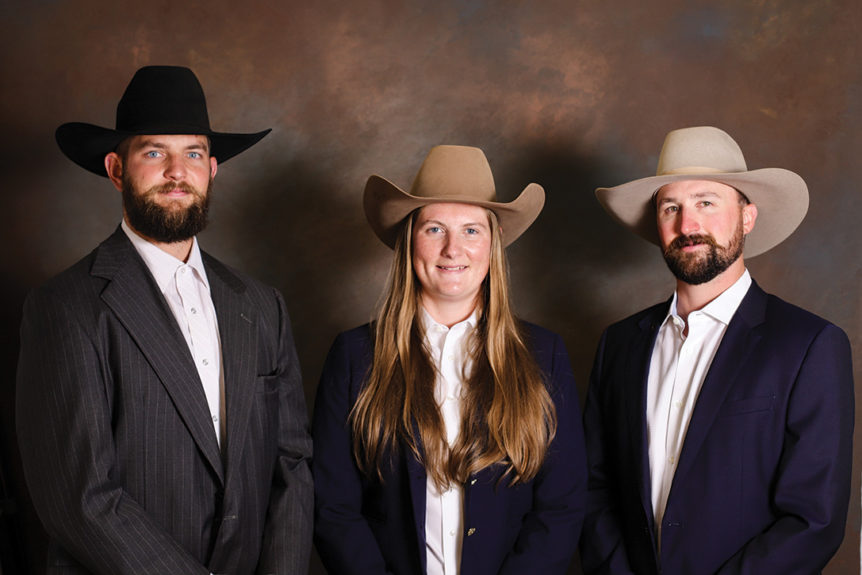With exposure to diverse operations across the country, networking with professionals, and classroom learning, KRIRM students embrace the opportunity to learn more about current challenges facing the industry. As the graduating class of 2023 prepares to return to the workforce, they share some of the biggest challenges they have noticed and potential solutions going forward.
The class of 2023 includes Bradley Donner, Caroline Wild and Tyler Woodland.

Bradley Donner says, “While there are many challenges facing the industry, one that I find particularly interesting is maintaining a ranch’s viability. I want to help generational ranches continue to be passed down to the next operator or help new owners fulfill their dreams of operating a successful agricultural enterprise. With traditional livestock ranches’ tight margins, we need to look outside the box and consider what the best use of the land’s resources are for present and future success while fulfilling ownership objectives by utilizing science, comprehensive data, accurate accounting principles and sound financial practices.”
Caroline Wild remarks on the importance of continuing education, “The need to adapt to ongoing changes in the ranching industry remains a key challenge; continuing to learn through programs like the ones at KRIRM is crucial, as well as sharing information through online courses and conferences.” She adds, “As a woman in agriculture, I also feel strongly that the livestock and ranching industries should embrace the participation of women in both educational programs and management positions; this will be a crucial part of the evolution and growth of agriculture. Women are a largely untapped resource and have the potential for great contributions to our industry.”
Tyler Woodland concludes sharing a challenge he has noticed regarding a lack of sustainable land management practices in the livestock and ranching industries due to stocking rates that are too high and lack of adequate rest periods for grazed pastures. He notes, “Although lower stocking rates may decrease revenue in the short-term, it will prevent overgrazing in the future and provide a maintainable environment. There is a balance between land management and profitability that needs to be evaluated according to regional differences.”
He continues saying, “Profitability is an all-encompassing challenge. There are many different practices that can be adopted to increase profitability. As students, we have been able to learn from industry leaders at the KRIRM Holt Cat Symposium and National Cattlemen’s Beef Association how to increase profitability. It is key to keep an open mind when it comes to management practices, additional sources of revenue, risk management and other areas.”
 KRIRM Class of 2023 at the 19th Annual Holt Cat Symposium (left to right):
KRIRM Class of 2023 at the 19th Annual Holt Cat Symposium (left to right):
Caroline Wild, Tyler Woodland and Bradley Donner

